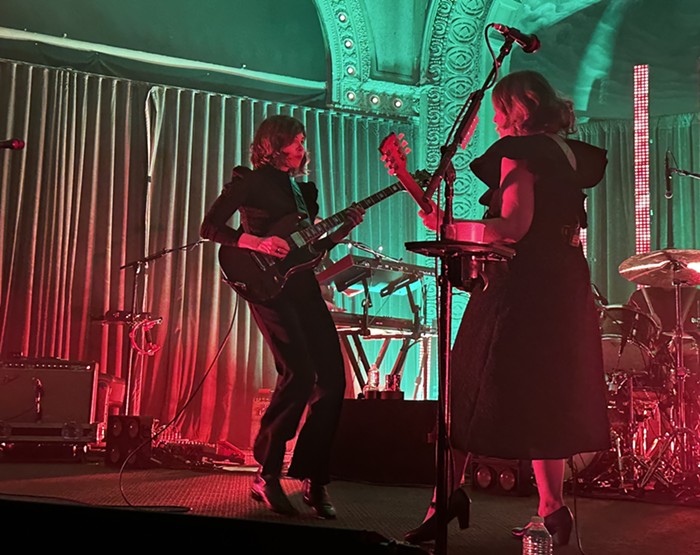The Spinto Band's new album, Moonwink, absolutely soars. That might not have been what you expected, since its predecessor, Nice and Nicely Done, had its share of beautifully arcing hooks, but its charms were firmly grounded. The 2005 release had harmonies—led by Nick Krill and Thomas Hughes—that were on-point without losing their everyman fallibility, and there was a memorable appearance from that most human-scale of instruments: the kazoo.
Moonwink, however, starts a few miles high and stays elevated, its tone shifting into progressively brighter colors. The stops and starts on "Vivian, Don't" are captured with a tuneful precision, and even the early morning sound of "The Black Flag" abounds with harmonies and rapidly swelling melodies. It can't be coincidence that one of the songs here bears the name "The Carnival."
Nice and Nicely Done served as the group's breakout album, but it's significant in that the group's sound emerged more fully formed than most, less polished than refined. That sensibility takes other forms as well—their website comes into focus with an aesthetic ready-made to be imprinted on banners and flown from tents, with constellations and lunar phases intermixing with live video clips, mask designs, and cult-film references. A selection of their recent tourmates—We Are Scientists, Arctic Monkeys, Frightened Rabbit—suggests their membership in a loose confederation of literate, driving pop.
The core of Moonwink derives inspiration from ELO to Broken Social Scene. Still, it's hard to shake hints that the Spinto Band's sound might take them to parts far removed from rock music proper: There's a pop classicism at work here in parallel with their indie-pop roots, and it isn't hard to imagine the group following the leads of Paul Simon and Stephin Merritt by composing for the stage in some capacity.
Beneath the soaring melodies, Krill and Hughes' lyrics remain focused and, at times, elusive. Negations and negotiations abound, alongside attempts to explain the unexplainable. It's a maneuver that feels conscious: When you've written enough pop songs about the limits of language, you may find places an unabashed sound can go where words don't fit.


















